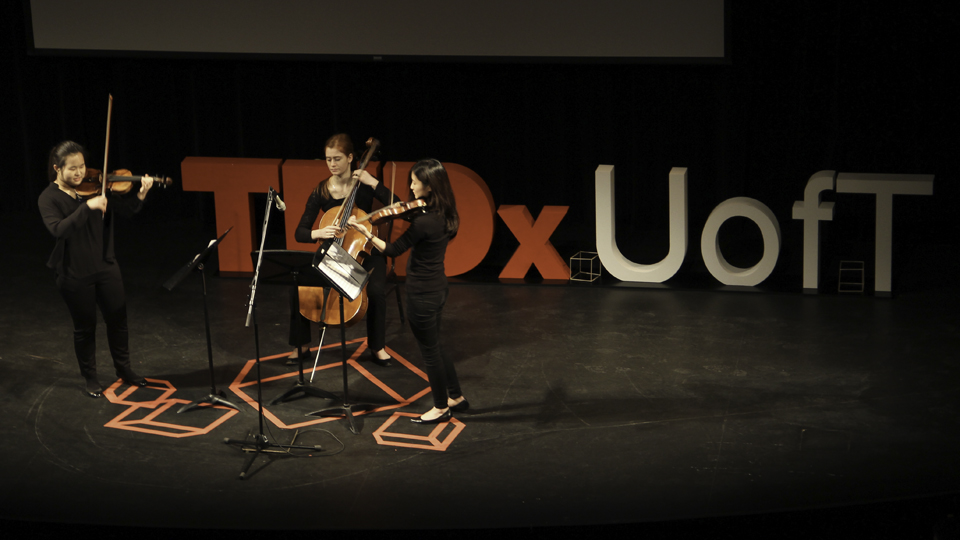U of T held its second TEDx talk this past Saturday at the Isabel Bader Theatre downtown.
Several speakers and performers took to the stage, presenting research and ideas on topics that included the construction of a real invisibility cloak and the dangers of a kiss.
According to a blurb on the event’s webpage on TED.com, “The purpose of TEDxUofT is to promote free knowledge and inspiration from the world’s most inspired thinkers. It’s to allow a community of curious souls to engage with ideas and each other.”
Students applied in advance to attend the event. The conference was described as having been planned for 500 people, an increase over last year. The event opened with an address from Karen Gomez, the event chair.
The first speakers, Cameron Robertson and Todd Reichert, discussed the importance of making time for failures and how to handle various degrees of failure when taking on new projects.
Other notable speakers included Clifton Vanderlinden, the founder and CEO of Vox Pop labs and the creator of Vote Compass.
The event included musical performances by classical guitarist Tariq Harb and by singer-songwriter Sarah Kenvyn and her band.
Near the end of the day, delegates heard from Matt Ratto, who presented his research on the production of prosthetic limbs through 3D printing.
The other speeches touched on numerous specific projects and research. Jessie MacAlpine, an 18-year-old who discovered a herbicide with the potential to treat malaria, encouraged the delegates to “question the world like a child”.
“Her innovation and drive at such a young age was truly inspiring,” said John Wilson, chief tech of Power Barr, one of the event’s sponsors.
The other sponsors included Manulife Financial, Hart House, Nuance, and U of T itself.
The student-organized TEDx event was streamed live online, where students from all three U of T campuses could watch the speakers and performances.
TED is a non-profit organization founded in 1987. Its TEDx division licences organizations around the world to organize TED-style events in their own communities.

